Your Path to SUCCESS ENGINEERING




To best meet the needs of industry today, we provide a broad engineering education as the foundation of your studies, along with a deep dive into your chosen specialization of interest, including civil, computer, electrical, mechanical engineering, or a customized study. We know that engineers work on cross functional teams, and learning different aspects of the engineering field in addition to your specialization sets your resume apart and provides important skills for a successful and fulfilling career.
Through our program, accredited by the Engineering Accreditation Commission of ABET, you’ll develop the creativity and flexibility employers are looking for to solve problems in our complex and rapidly changing world.
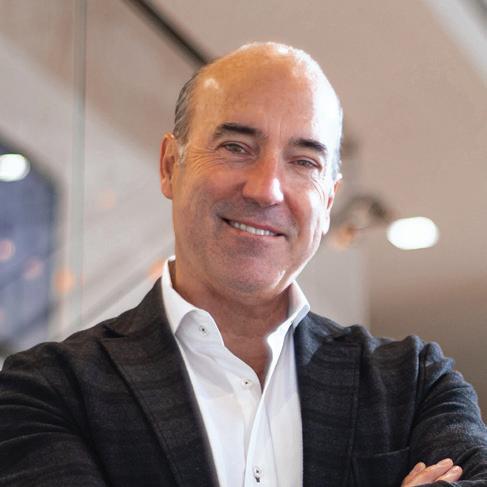
The newest building on the Bristol campus, the Richard L. Bready Applied Learning Laboratories, is designed to foster collaboration and innovation while offering high tech resources for experiential learning. The three-floor, 27,325-square-foot building, features cutting-edge laboratories, senior design project rooms and open spaces dedicated to hands-on education including:
» Collaborative workspaces
» Project rooms
» Innovation ‘Maker Space’
» Applied Engineering and Fabrication lab
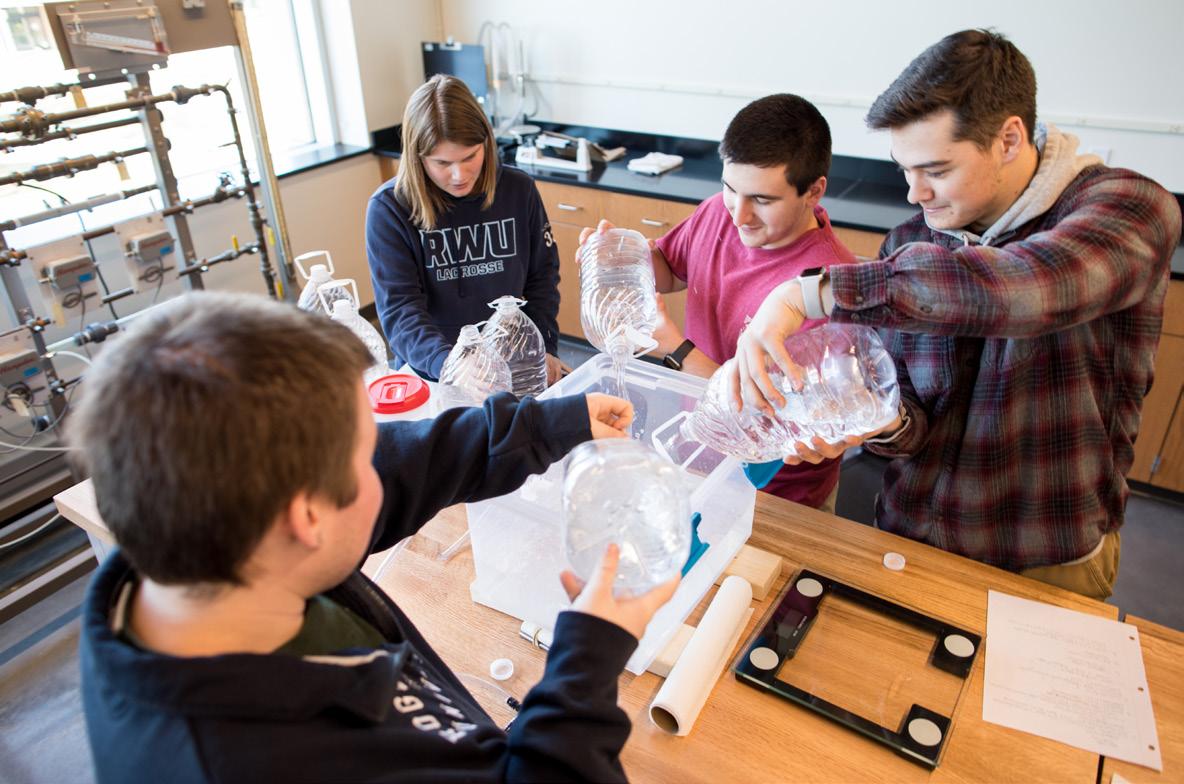
» Fluid Mechanics lab
» Electrical Engineering lab
» Mechanics of Materials lab
» Pizza delivery robot
» Arthroscopic surgery suturing device
» Bike path bridge and foundation design
» Human powered vehicle competition

» Wearable blood oxygen meter
» Stormwater modeling and retention design
All my Engineering professors were very attentive, supportive, and genuinely cared about whether we were learning the material. Dr. Maija Benitz has always been an inspiration for me as a woman in Engineering. She really cares about her students and is very approachable and accessible. She also gave me the push and encouragement I needed to pursue my Ph.D.
HANNAH DARLING ’22 ENVIRONMENTAL ENGINEERING

Ph.D. candidate at UMass Amherst’s Mechanical Engineering program
The Electrical Engineering courses I took gave me a very good basis to build off, and I like that I was able to get an interdisciplinary engineering experience. I won’t be working on a project that’s strictly electrical. There will be mechanical components and having that background of knowing how things work is going to be really helpful. That’s one of the reasons I chose Roger.
DANIELLA GIANNOTTI ’22 ELECTRICAL ENGINEERING
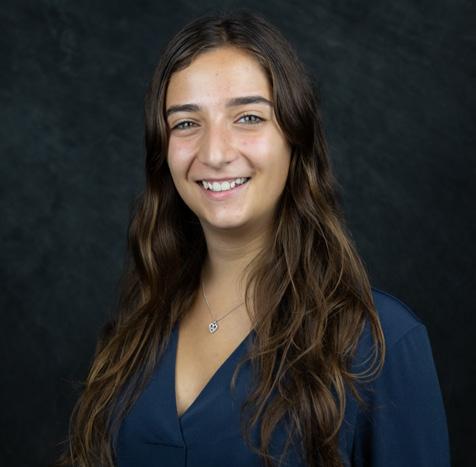
Integration and Test Engineer at L3Harris Technologies in North Amityville, N.Y.

By the time I was in advanced classes, there were only 10-12 students in each class. We were all really close with our professors. I remember one professor who would stay late after class helping students with projects, working on robotics, having fun and always being there for support. You could tell he really cared.
JARED RAMOS ’18
CIVIL ENGINEERING Project Engineer at Gilbane Building Company in Providence, R.I.
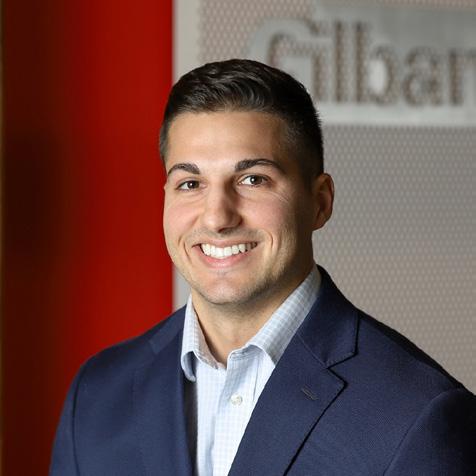
You will have the opportunity to network with industry professionals, attend national and local conferences and receive technical training through workshops via the following societies:
» Society of Women Engineers (SWE)
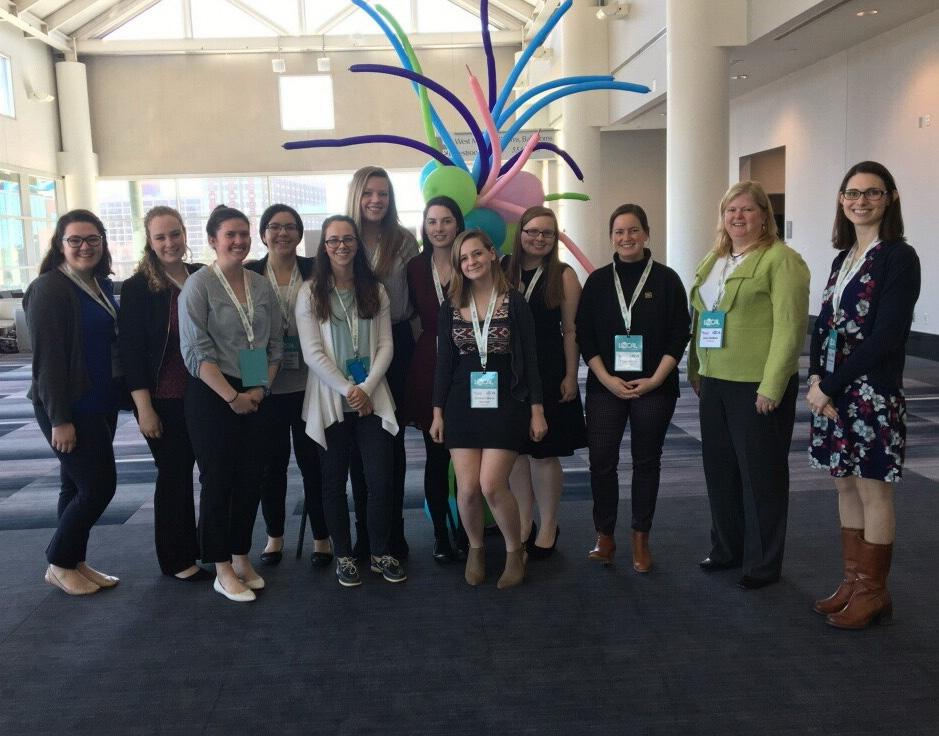
» American Society of Civil Engineers (ASCE)
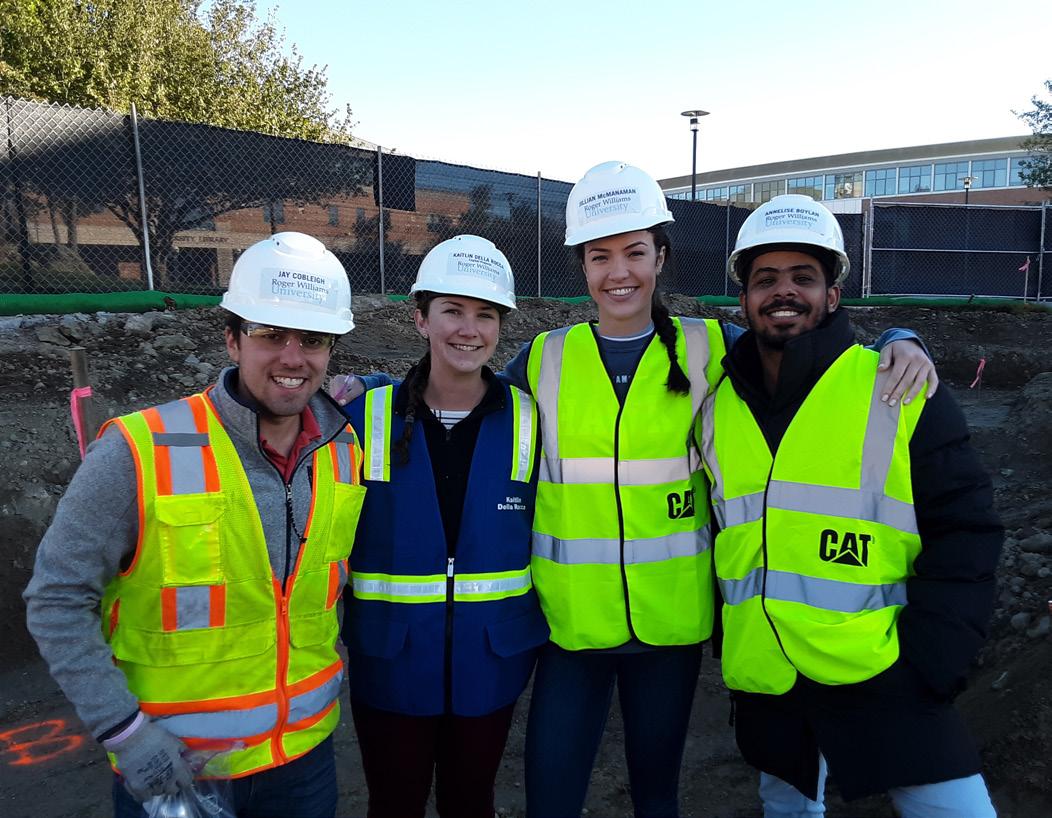
» American Society of Mechanical Engineers (ASME)
» Institute of Electrical and Electronics Engineers (IEEE)
JANET BALDWIN PROFESSOR OF ENGINEERING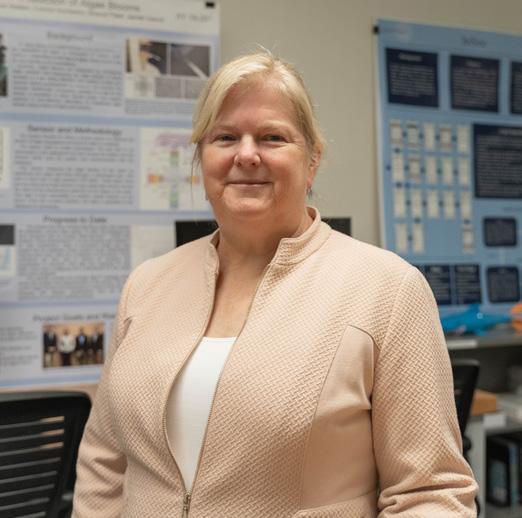
of Natural Science, Computer Science, Engineering and Mathematics professors at RWU are women, ahead of the national average of 36%
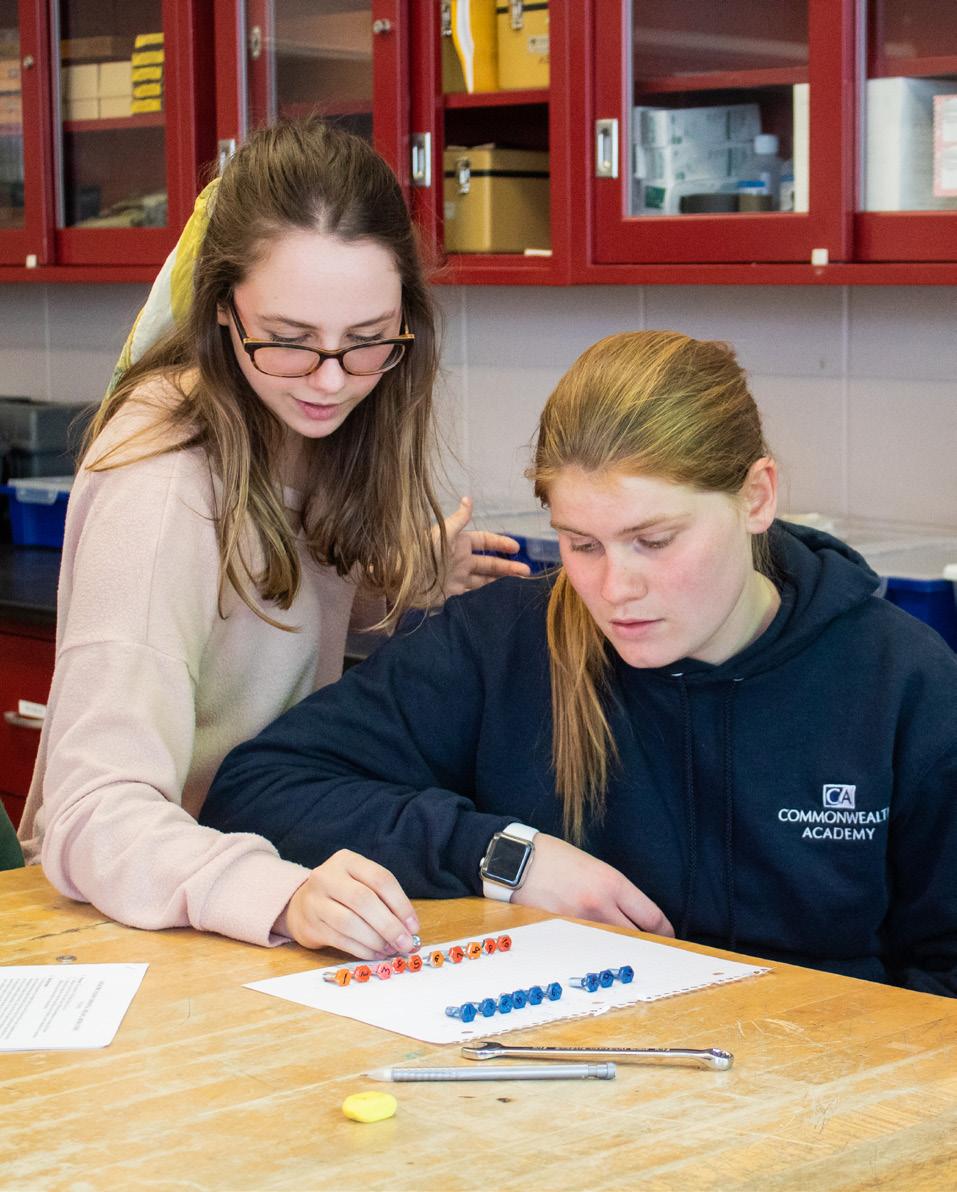
“The mission of the Society of Women Engineers is not just about helping women network with other women in engineering, but it’s to reach out and excite girls about engineering as well as to educate.”
As an Engineering student, you are assigned a faculty advisor to mentor you throughout your four years. Your faculty advisor will get to know you academically, personally, and professionally. They’re always available to help you work through challenging assignments, guide you through research or design projects, and help you to find internships and jobs.
Virtually all of our Engineering students find paid internships within their specialization field during the summer after their sophomore and junior years. These internships often lead to full-time job offers.
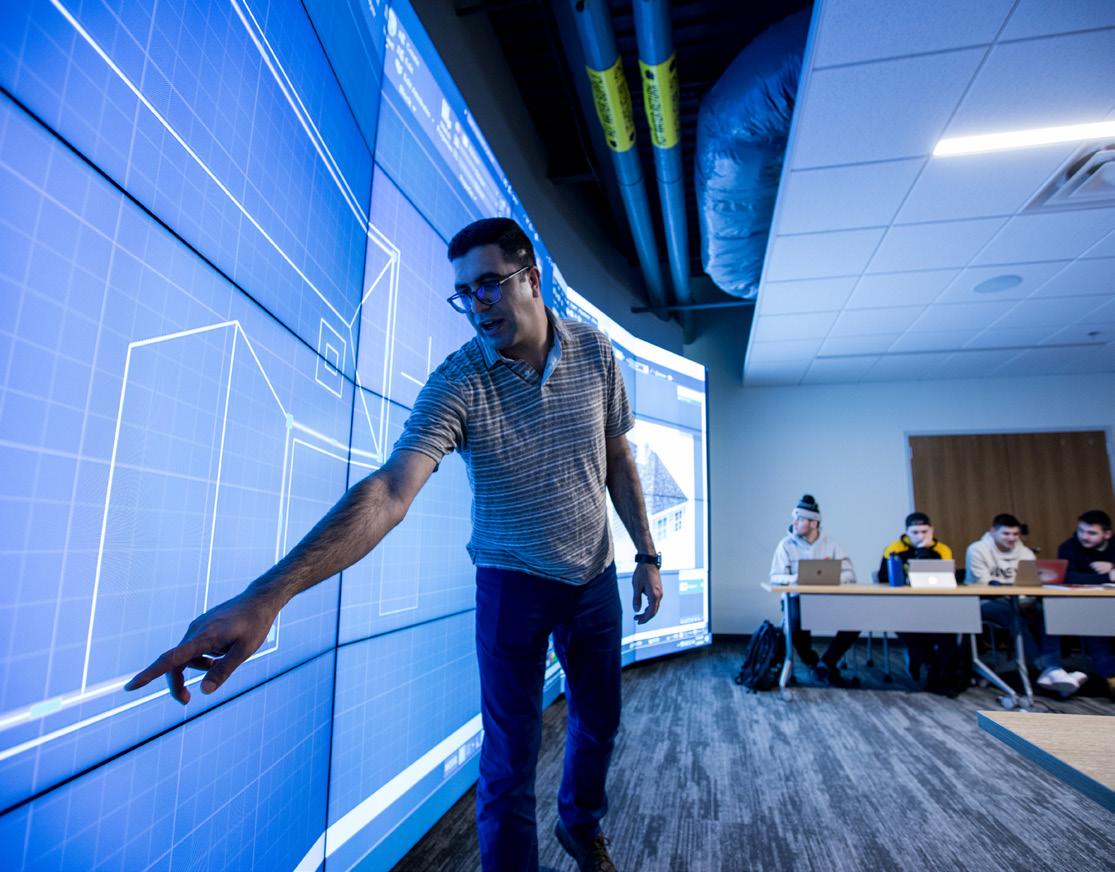
Our students are encouraged and supported to take the Fundamentals of Engineering exam and become an Engineer In Training (EIT), a professional designation from the National Council of Examiners for Engineering and Surveying (NCEES) and a key step toward licensure as a Professional Engineer.
Much like the cross-disciplinary work that will be in their future careers, the design of our students’ senior projects integrates math, science, computer science, and engineering principles into a comprehensive, client-based engineering design project. Student teams work with faculty advisors to design and fabricate solutions to open-ended problems and present their projects at professional conferences and competitions.
Beginning in your third year, you will have the flexibility to tailor your education to your own interests by selecting a specialization. Students may choose from civil, computer, electrical, environmental, or mechanical, or consult with a faculty advisor to create a custom specialization such as biomedical, the choice is yours.
From the roads, highways and bridges we drive on to the clean water we drink and the buildings we see in the skyline, Civil engineering makes modern life possible.
The rapid advances in today’s computer technology are largely the result of the research, development, and design efforts of computer engineers.
In a world where technology is constantly growing and evolving, Electrical Engineering is becoming more essential, from lighting and wiring in buildings to electric motors for automobiles.
Environmental engineers work on solutions to water and air pollution, design water supply and wastewater treatment systems, and study the effects that acid rain, global warming, and automobile emission have on our everyday lives.
From power-producing machines like wind turbines, hydroelectric generators, and internal combustion engines to power-using machines like cars, planes, robots, and medical devices, mechanical engineers are constantly designing and developing lifechanging mechanisms.
Students interested in more than one type of Engineering, or those who want to prepare for an emerging field not defined by a traditional specialization, can work with their faculty advisor to design a custom specialization perfectly tailored to their interests such as biomedical, chemical, industrial, architectural, and engineering management.